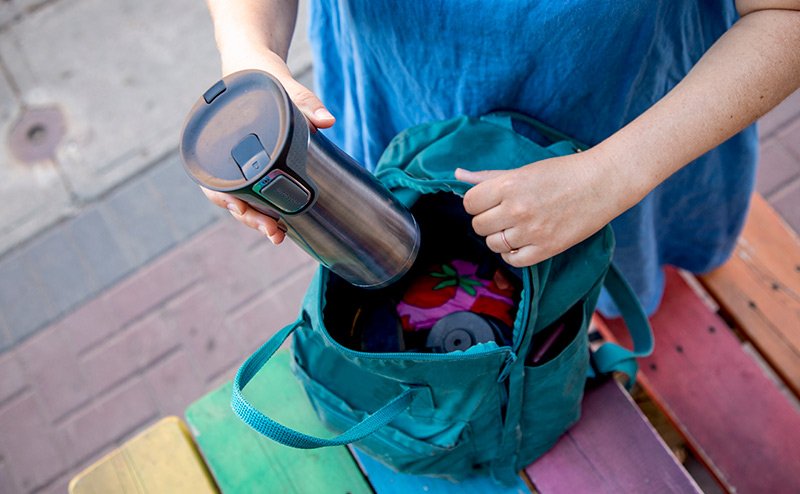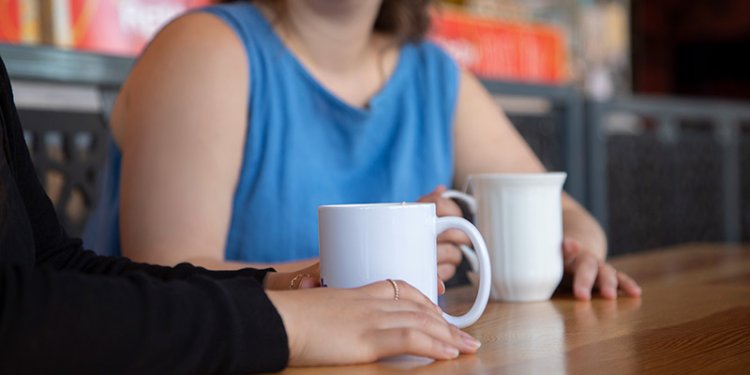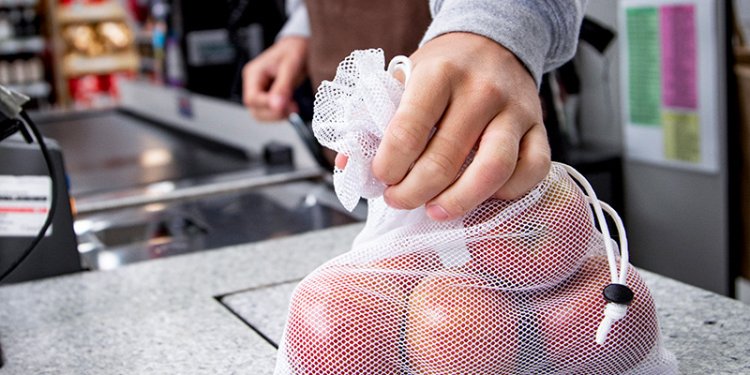Edmonton’s Single-use Item Reduction Bylaw (20117) helps reduce waste by targeting everyday items such as shopping bags, cups and straws that can easily be avoided or replaced with reusable options. The goal is to reduce the total number of single-use items, not to switch from plastic items to non-plastic items.
What Do I Need to Know About the Bylaw?
The bylaw addresses these items:
Minimum fees for shopping bags are 25 cents for a paper bag and $2 for a new reusable bag. Businesses keep these fees and will continue to charge GST where required. This fee encourages customers to bring their own bags and helps businesses recover the cost of the bags.
Single-use plastic shopping bags (including compostable or biodegradable plastic shopping bags) can no longer be distributed. Businesses must charge a minimum fee for paper shopping bags and new reusable shopping bags (including those provided by restaurants for take-out orders).
Exceptions:
- Bags for all types of bulk items
- Produce, baked goods and other unpackaged foods
- Medications from a pharmacist
- Wrapping that is in direct contact with food, such as burger wrappers and fry boxes
- Bags used to protect items from becoming dirty or exposure, such as dry cleaning, plants, newspapers
These items can no longer be used.
Restaurants are expected to serve dine-in drink orders in reusable cups and have a written policy for accepting reusable customer cups. Reusable cups are made from durable materials like metal, ceramic or hard plastic, and can withstand repeated washing, sanitizing and use.
Drive-thrus are encouraged, but not required, to accept reusable cups. Reusable cups can be politely refused if it is deemed unsafe or unsanitary to accommodate.
Some restaurants hold food handling permits that require single-use cups. These permits must be posted in a visible location.
Accessories such as utensils, straws, condiment packets and napkins will only be available by request or self-serve. When buying food at a drive-thru, restaurants will ask if you need napkins, condiments, straws or utensils.
Single-use plastic foodware accessories are prohibited by Canada’s Single-use Plastics Prohibition Regulation. Learn more about the federal regulations.
Environmental Benefits
Asking businesses and customers to use fewer single-use items means:
- Fewer of these items - cups, straws, shopping bags, condiment packets and more - will be thrown in the garbage or littered
- Reduced emissions from the production, shipping and disposal of these items
Through these measures, the City aims to reduce the number of regulated single-use items used in Edmonton by 20% per person within 4 years.
Benefits to Businesses
Several bylaw regulations can save businesses money:
- Providing items like disposable cutlery, straws and condiment packets only upon request ensures businesses are not paying for unnecessary items
- Serving dine-in beverages in reusable cups can save businesses about 20 cents per beverage served
- Charging the minimum fee for paper and reusable bags will help offset the higher cost of these items, with businesses keeping the revenue from bag fees
Safe Use of Reusable Items
Businesses following proper health and safety protocols can safely use reusable items. Each year in Edmonton, millions of single-use cups are thrown in the garbage. There is a huge opportunity to reduce waste by bringing your own reusable cup!
Be sure to wash your reusable mugs and containers between uses, and visit businesses and events to learn more about what businesses can do to ensure reusable items are used safely.
Canada’s Single-use Plastics Prohibition
The Federal Single-use Plastics Prohibition Regulations prohibit the manufacture, import and sale of single-use checkout bags, cutlery, foodservice ware made from or containing problematic plastics, ring carriers, stir sticks and straws.
The City has its own bylaw to help reduce single-use items made out of all materials, not just plastic.
Quick Reference
Comparing Canada’s Single-use Plastics Regulations with Bylaw 20117
For detailed information about the Government of Canada’s regulations, please see the Technical Guidelines.
Edmonton SUI Bylaw 20117
Film plastic shopping bags are banned.
Minimum fee required for paper and new reusable shopping bags.
Federal Regulations
Non-fabric plastic shopping bags are banned.
Edmonton SUI Bylaw 20117
Regulated as a “foodware accessory”.
Stir sticks of any material available by request only.
Federal Regulations
Plastic stir sticks are banned.
Edmonton SUI Bylaw 20117
Regulated as a “foodware accessory”.
Straws of any material available by request only.
Federal Regulations
Plastic straws are banned.
There are some exemptions, including flexible plastic straws sold in packages.
Edmonton SUI Bylaw 20117
Foam cups, plates, bowls and containers are banned.
Other types of plastics/materials not addressed by the bylaw.
Federal Regulations
Foam clamshell containers, lidded containers, boxes, cups, plates and bowls used to hold ready-to-consume food are banned.
Edmonton SUI Bylaw 20117
Regulated as a “foodware accessory”.
Cutlery of any material available by request only.
Federal Regulations
Single-use cutlery made from some plastics is banned.
Edmonton SUI Bylaw 20117
Not included in the bylaw.
Federal Regulations
Flexible plastic ring carriers are banned.
Edmonton SUI Bylaw 20117
Dine-in drinks are expected to be served in reusable cups.
Restaurants must have a policy for accepting customers’ cups for drinks to go.
Federal Regulations
Not included in federal regulations.
Bylaw Complaints
Edmonton businesses holding retail or food and beverage service business licences are required to comply with the Single-use Item Reduction Bylaw, with some exceptions.
If complaints are received about non-compliance with the bylaw, the City will first respond using outreach and education. The business will first receive a letter, then a phone call, followed by an in-person visit by a member of Waste Services if they remain non-compliant. If a business can demonstrate it is working towards compliance within a reasonable timeframe, it is unlikely to receive a warning or a fine.
You can help support waste reduction in Edmonton by calling 311 if you notice a business is not complying with the bylaw. Your name will not be shared.
Single-use Items Plan
Learn more about Edmonton’s Plan to Reduce Single-use Items




